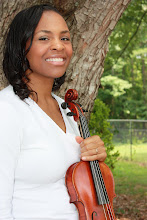If you're a musician, or even a public speaker, really what is the difference between private practice and public performance?
There are some very important differences. For instance, when you practice, the atmosphere can range from very casual to high stress depending upon the pressures of time constraints and much of that can be self-inflicted. Performing in public can create more anxiety because lots of people are watching you and you appear to be vulnerable. There can be a lot of pressure created when several pairs of eyes are watching. What can make me nervous is thinking about all of the expectations of my audience. But in reality, most audiences expectations are much lower than what I anticipate. I practice so that I'm over-prepared, with a high level of self-inflicted stress and when the time comes to perform, I relax as much as possible.
But this morning as I played at Shadowbrook Baptist as a guest, it occurred to me how important it is to practice your performance. By that I mean maintaining the level of attentiveness while practicing that you would while performing. While performing in front of an audience and a mistake occurs or the quality is not as well as it could be, immediately adjust so that it does not continue but improves as the piece progresses. If you practice in such a way to maintain a high level of attentiveness while practicing privately, then you accomplish two things. One, the amount of practice time required to master a new piece is greatly reduced. And second, the technique of recovery is also mastered effectively.
Practice does not make perfect.
Practice makes permanent.
This is true beyond the musical realm into personal character disciplines. What is practiced becomes habit. Then it is done without convictions or reservations; it becomes automatic. The same thing with mistakes. When you practice without paying full attention to what you're doing, it may be better just to take a break, refresh your mind and come back when you can be fully attentive. Playing through a piece from beginning to end, over and over again, without stopping to correct your mistakes wastes time and makes it more difficult to correct later. If you make playing the correct way the permanent habit of playing, then your time is being maximized to it's fullest potential.












No comments:
Post a Comment